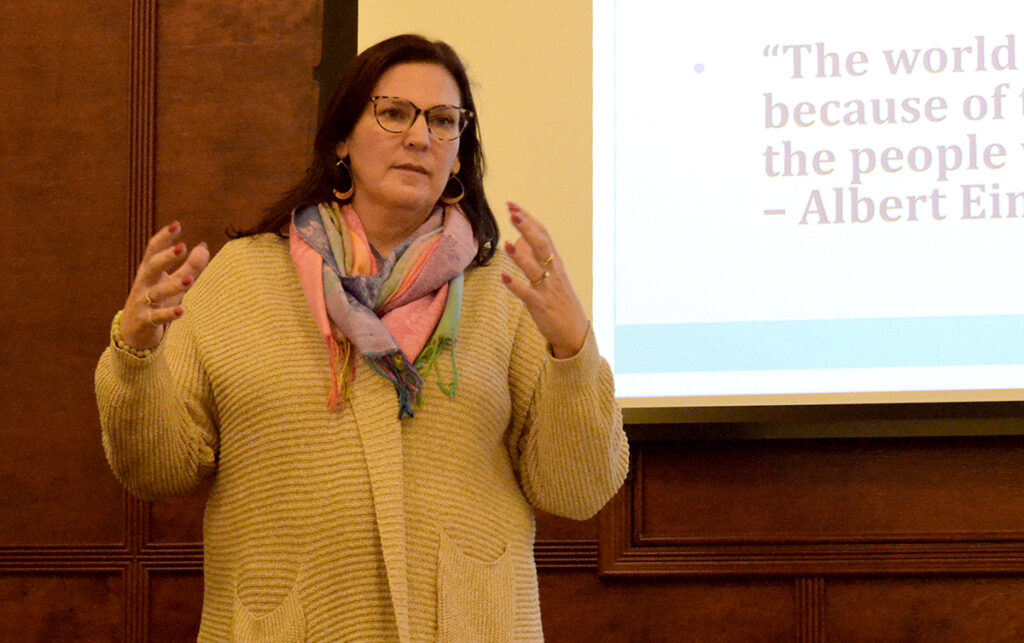
ADRIAN — About 50 people filled a lecture room at Adrian College’s Valade Hall on Nov. 2 for a town hall about homelessness sponsored by the Share the Warmth shelter.
Kelly Castleberry, former executive director of Share the Warmth, shared some facts about homelessness. Nationwide, she said, the U.S. Department of Housing and Urban Development estimates there are about 582,000 people experiencing homelessness. Of those:
- 72% are individuals and 28% are people in families.
- 22% are chronically homeless.
- 6% are veterans.
- 5% are unaccompanied youth.
Castleberry said there is one category of homelessness that has actually fallen recently, and that’s homelessness among veterans. She attributed success at reducing the homelessness rate among veterans to a strong federal policy focus on that particular group.
Castleberry asked attendees to consider what things related to homelessness have high or low levels of awareness among the general public. Things with high levels of public awareness include the sight of people walking the street or high-profile crimes that get lots of attention and spread the idea that homeless people are dangerous, when in fact crimes like the ones that get attention are “few and far between,” she said. Things with low levels of awareness include what people experiencing homelessness deal with on a daily basis, such as being harassed or having their possessions stolen, Castleberry said.
A Share the Warmth guest in attendance said another thing people don’t seem to be aware of is “that we’re human just like everybody else.”
Some additional facts shared by Castleberry were:
- Many unhoused people in the U.S. have jobs, including about 40% of Share the Warmth guests.
- Homelessness is also a health issue. Castleberry asked the audience to consider what happens when a person doesn’t have access to the kind of regular hygiene that prevents infections or a place to keep medicines, or when a trip to the hospital is always followed by a long and potentially dangerous walk back to town along M-52.
- Many communities criminalize homelessness in various ways.
- Unhoused people die 10 years younger than the population as a whole.
- LGBTQIA+ youth are uniquely vulnerable.
Participants in the town hall also discussed some of the factors exacerbating homelessness, including mental health issues (which can cause homelessness or be caused by it) and the high cost of housing relative to the wages paid by entry-level jobs.

